Care
Our right for equal access to timely, high quality care
Healthcare
Official relations with WHO Europe
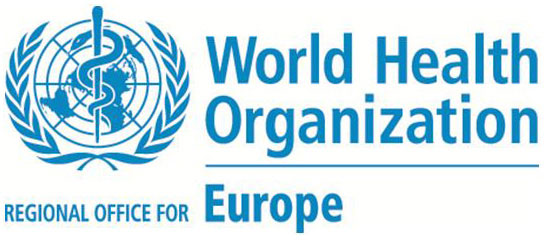
In September 2021, EFA was confirmed by the 71st World Health Organisation Regional Committee for Europe as a non-state actor in official relations with WHO Europe. We participated in the Regional Committee with a delegation of three patient advocates, a joint written statement on lung health in Europe co-authored with the European Respiratory Society. EFA also co-signed four joint statements:
- Calling for more resilient health systems that eliminate the inequalities we have witnessed aggravated by COVID-19
- Calling for more funding in public health and towards a safer workplace environment for healthcare workers, and stressing the vital role of healthcare professionals
- Calling for more resourced, equipped and accessible primary healthcare settings that liaise with the communities where they operate
- Supporting the European Immunization Agenda 2030 and recommending efforts to improve life-course immunization in Europe.
Throughout the year, EFA participated in the different meetings and consultation to define the WHO European Immunization Agenda 2030. The Resolution, adopted by the Regional Committee, will benefit our patient community by protecting patients living with chronic respiratory disease against flu and flu-originated diseases such as pneumonia, which can be prevented through better access to the influenza and pneumococcus vaccines. We particularly welcome the Agenda’s prioritisation on surveillance and monitoring of vaccine-preventable diseases, and the proposal to focus on improving the reporting and follow-up of adverse events following immunization, such as anaphylaxis reactions.
EU4Health Civil Society Alliance
![]()
The EU4Health Civil Society Alliance (CSA) is an important forum for discussion, coordination, and joint advocacy. In 2021, EFA continued working as part of an alliance of 27 organisations towards a stronger EU in public health policies.
Among the highlights of the year was the campaign to bring back the Operating Grants (OGs) as a key funding mechanism of the EU health programme. EFA contributed to a unified voice through joint policy statements and directly engaged with both the European Commission’s DG SANTE and the European Parliament. The alliance was successful in bringing the united voice of the health non-governmental organisations (NGOs) at the forefront of this critical issue.
The reinstatement of the OGs, even based on strict eligibility criteria that excludes many NGOs from funding, acknowledges the role of civil society in the implementation of health policies, especially in light of the COVID-19 pandemic. As a member of the EU4Health CSA, EFA will remain vigilant on this aspect in future work plans of the EU health programme.
Allergy and airways diseases patients in Health Technology Assessment
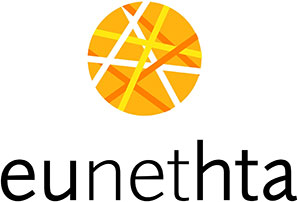
The COVID-19 pandemic has been a catalyst for action in many health policy areas. One example is the sudden agreement on the EU Regulation on Health Technology Assessment, a proposal that was paralysed for two years during lack of agreement at Council level.
The HTA process had been fragmented in the EU, performed by around 50 European HTA national and local agencies who have been using different systems to evaluate new treatments and their prices. However, in June 2021 EFA was able to welcome the trialogue agreement reached on HTA. The HTA Regulation was finally adopted in December 2021, entered into force in 2022 and will apply from 2025. Its main objectives are to offer a framework and procedures for cooperation of EU Member States on health technologies, to provide with a mechanism that allows for a unique HTA request submission, and for common rules and methodologies for the joint clinical assessment of health technologies.
As Member of the European Commission HTA Network, EFA participated in several meetings throughout the year. In these meetings, EFA conveyed our concerns on the negotiations trade-offs following the trialogue negotiations and paving the way towards an HTA Regulation that reinforces patient participation.
We also participated in the closure of the EUnetHTA project that steered the end of existing HTA coordination among Member States during the set-up of the legal framework now brought by the Regulation.
Application of the Medical Devices Regulation
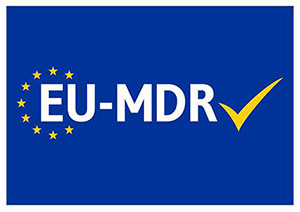
The Regulation Governing Medical Devices in the EU, a crucial legislation for allergy, asthma and COPD patients, entered into force in May 2021. EFA participated in a workshop organised by the European Commission and communicated to Members the novelties brought by the regulation, including an easier labelling and categorisation for each type of device. EFA inquired to the Commission during the workshop and with written questions on the new Regulation failing to ease the current legislative limbo of drug-device combinations, which are numerous in the therapeutic areas of allergy (especially in the case of lifesaving treatment), dermatology, immunology and pneumology. To follow this, EFA will advocate for an improved legislation on this issue within the EU Pharmaceutical Strategy work.
Medicines
EFA’s contribution to the European Medicines Agency
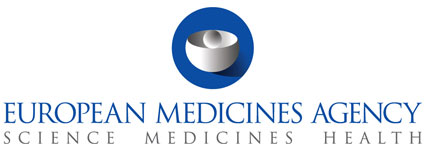
In 2021, EFA was renewed as an eligible organisation and Member of the European Medicines Agency Patient and Consumer Working Party (EMA PCWP) to continue providing essential input to on behalf of allergy, asthma and COPD patients. We also participated in the EMA 2025 priorities consultation and survey on identifying future challenges and key priorities for patient and healthcare professionals’ organisations.
In 2021, EFA participated in:
- 5 PCWP meetings.
- 4 workshops: on real-world meta-data for regulatory purposes, on the setup of an EU Common Standard for electronic Product Information (ePI), on the learnings from Optimal Use of Big Data initiative and on the International Council for Harmonisation (ICH) upcoming guidelines on Good Clinical Practice for clinical trials.
- 2 stakeholder meetings on COVID-19 vaccines and the 2nd EU Big Data Stakeholder Forum
EU Pharmaceutical Strategy
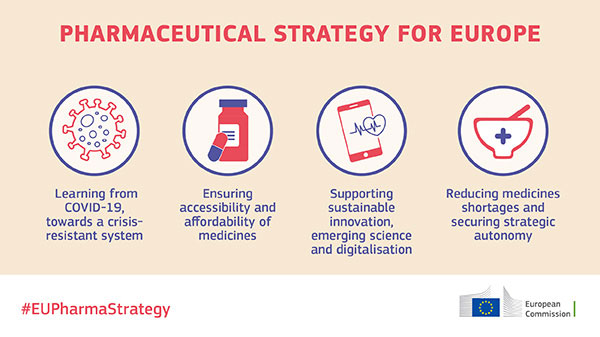
After the launch of the EU Pharmaceutical Strategy in September 2020, the European Commission opened the revision of several key pieces of legislation governing pharmaceuticals in Europe. The first one is the EU General Pharmaceutical Legislation – mainly composed of a directive and a regulation-, where the EU is looking at the effectiveness of these laws.
EFA, in close coordination with the European Patients Forum, participated in the 2021 written consultation to voice the calls from the allergy, asthma and COPD community. EFA highlighted that any criteria to define “patients unmet needs”, to be prioritised in the development of medicines, should have patients and their concerns at the core, and that increasing access to medicines among those who need them.
In 2021, the European Commission also sought input for the review of two specific legislations: the Orphan Diseases and the Paediatric Medicines Regulations. EFA conducted several workshops with Members and met with the EU level respiratory organisations within the European Lung Health Group, and with the European Academy of Allergy and Clinical Immunology (EAACI), to convey shared “patient unmet needs”. Together, we discussed the several barriers in accessing medicines, such as underdiagnosis of disease subtypes, delay and lack of adaption of adult drugs for children, limited access to clinical trials in medicine development, and limited knowledge. We also called for personalised medicines for allergy, asthma and COPD, to reduce side effects, reduce allergens in drugs, and provide timely risk assessment information to patients. Finally, we strongly asked for the development of clearer drug and device manufacturing legislation to provide patients with safe and easy to use lifesaving tools (e.g. adrenaline auto-injectors).
F-Gases
Within the ongoing revision of the review the Fluorinated Greenhouse Gases (F-Gases) Regulation to be closer aligned with EU climate objectives, EFA participated in the official Commission consultation and stakeholder workshops to inform officials about the concerns of asthma and COPD patients who use F-gas containing liquid inhalers that are mainly used as life-saving medication to avoid or stop asthma attacks and COPD exacerbations.
EFA communicated our concerns on the F-Gases consultations and called for fully integrated health considerations in all future EU climate policy. While treatment choices can and should be improved to meet environmental requirements, new legislation should not compromise patients’ access to the care they need.
Alongside the consultative process, EFA facilitated two workshops with the European Commission DG Climate Action, DG GROW, the European Respiratory Society and the International Pharmaceutical Aerosol Consortium to explore different stances on how to reduce F-Gas emissions with minimal impact on patients. The Commission proposal is expected for April 2022.
Digital Health
European Health Data Space Regulation
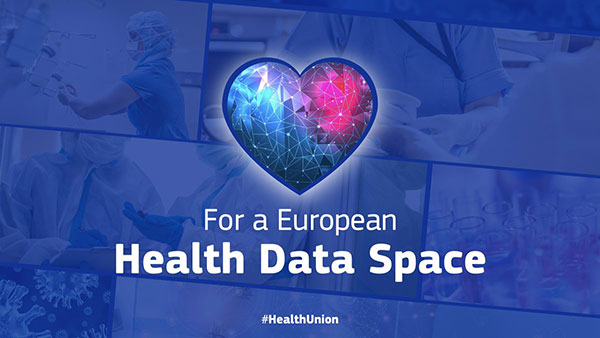
After the publication of the European Strategy for Data early 2020, the European Commission has been working on a future European Health Data Space (EHDS) to promote better exchange and access to different types of health, to support healthcare delivery as well as health research and health policy making.
EFA, in close coordination with the organisations in the European Lung Health Group, participated in two official consultations from the European Commission on the EHDS. EFA’s position welcomes the great potential of digitalisation in healthcare but asserts that digital health should in no way replace in-person healthcare. EFA’s evidence shows that asthma and COPD patients trust their healthcare professionals and consider them as the most reliable source of information. That relationship remains at the core of chronic disease care. EFA also stressed the great opportunity to address every aspect of health and social inequalities by fostering digital literacy and reducing technical administrative burdens for patients to access the future tools and platforms.

EFA published a joint submission with the BBMRI-ERIC (a research infrastructure for biobanks and biomolecular resources) to the consultation on the legislative framework for the governance of common European data spaces in July. Together we argued that a health data space ambition should connect researchers with existing data infrastructures, research networks and patient groups in order to advance healthcare.
THANK YOU!
Sincere thanks to the members participating in the Patient Education, Prevention, Allergy & Asthma, Food Allergy, Atopic Eczema and COPD Working Groups for their valuable contribution to the EFA responses in official public consultations.
EFA would like to thank Erna Botjes from the Dutch Stichting Voedselallergie who represented EFA at the EMA PCWP.